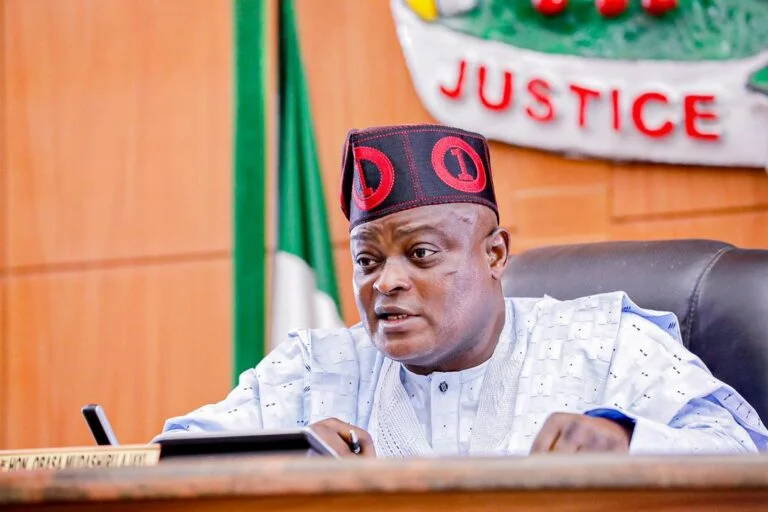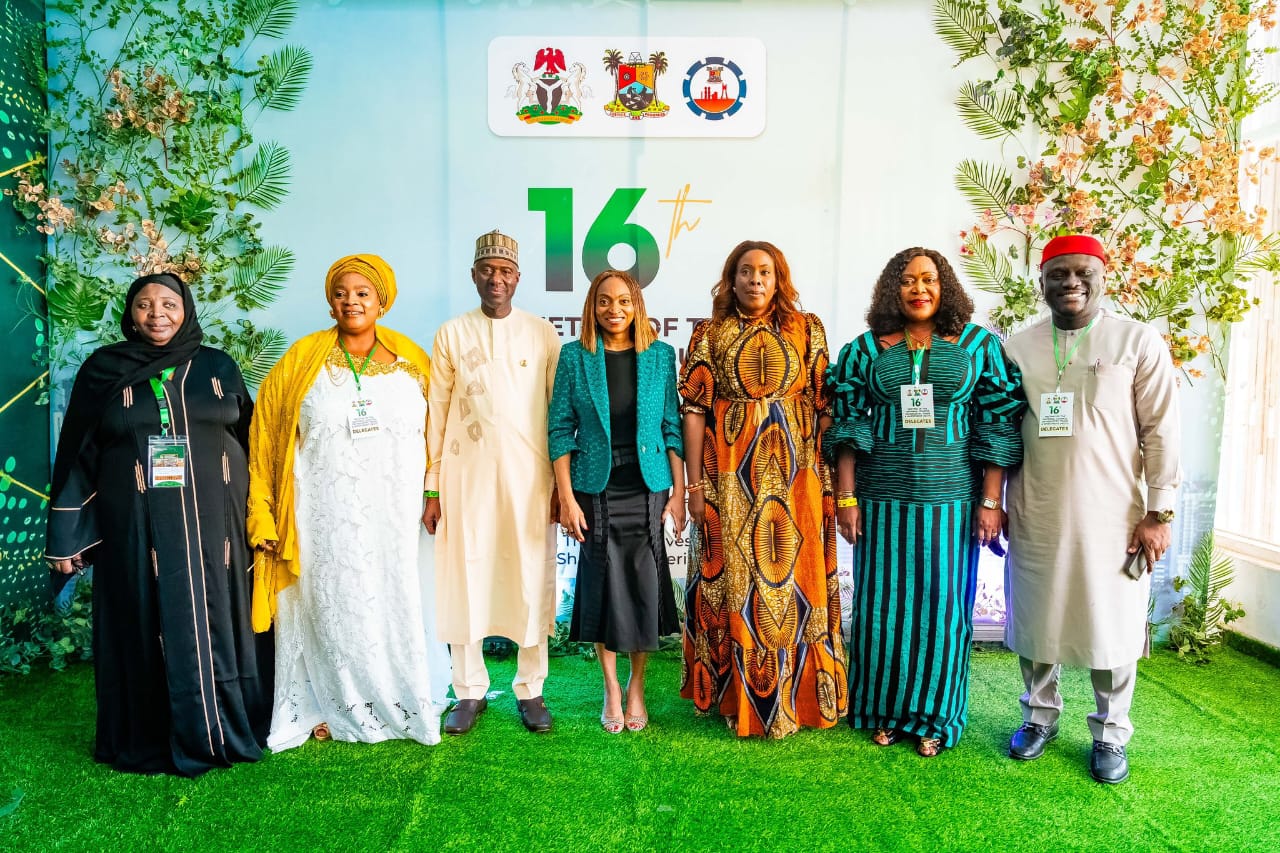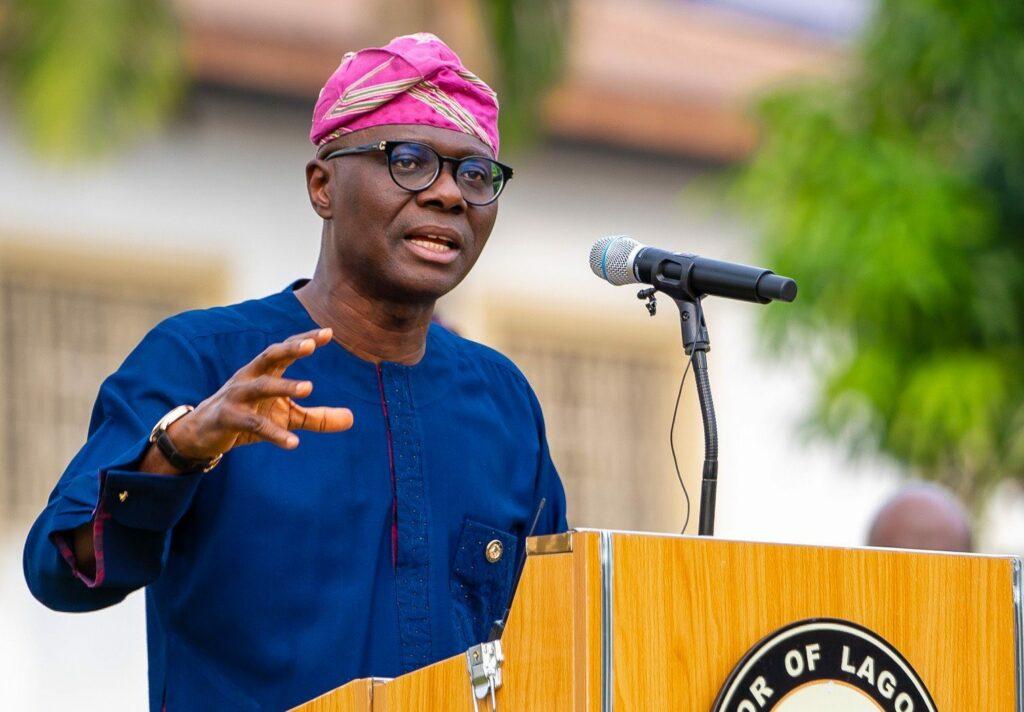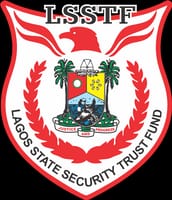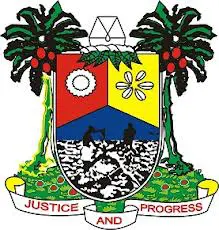380 total views today
By Aderonke Ojediran, News Agency of Nigeria (NAN)
When Gov. Babajide Sanwo-Olu assumed office as the 15th governor of Lagos State in 2019, he did not foresee that his first term would be shaped by two of the most defining crises of this decade — the COVID-19 pandemic and the #EndSARS protests.
Yet, as he marks his 60th birthday on Wednesday, residents and observers note that the state has survived stronger.
“It wasn’t easy during COVID 19,” said Mrs Funmilayo Ogundipe, a nurse in Agege.
“But governor Sanwo-Olu came on TV every day, reassuring us, telling us what the government was doing. That daily update gave me confidence and hope,” she said.
In his leadership, Lagos State set up isolation centres, introduced telemedicine, and rolled out an Infectious Disease Hospital in Yaba at record speed, a resident observed.
It is in record that the governor collaborated with private partners to provide protective equipment when global supply chains seemed to have collapsed.
“In the heat of the #EndSARS protests, Sanwo-Olu was the first governor to visit protesting youths and acknowledge their concerns.
“He walked with them, listened to them, and later established a judicial panel of inquiry into police brutality a decision that attracted both praise and criticism, Rilwan Ajibola, a youth activist in Surulere, noted.
For the benefit of hindsight, Sanwo-Olu had earlier built a solid career in the banking sector.
He held senior roles at Lead Merchant Bank, United Bank for Africa (UBA), and was Managing Director of First Atlantic Bank (now part of FCMB).
His financial background gave him a firm grip on resource management, project execution and public-private partnerships tools he would later deploy to great effect in governance.
He also had significant public service experience, having served as Special Adviser on Corporate Matters, Commissioner for Economic Planning and Budget, and Commissioner for Establishments, Training and Pensions.
In these roles, he spearheaded the digitisation of pensions and improved public sector efficiency.
These private-public sector experiences moulded him into a well rounded technocrat combining fiscal discipline with people centred leadership.
For instance, the long-awaited Blue Line Rail now glides across the city, reducing travel times from Marina to Mile 2. The Red Line, currently in advanced stages, promises even more relief to the residents.
“Since the rail started, I get home earlier, the extra time with my children means the world to me.” said Ngozi Umeadi, a teacher who commutes from Orile.
In public transportation, he replaced commercial motorcycles in key areas with safer First-and-Last-Mile buses, expanded ferry services through the Lagos State Waterways Authority (LASWA) and introduced solar-powered traffic lights in major intersections.
The introduction of area traffic control systems and digitised LASTMA operations has also begun to untangle the city’s perennial gridlock.
The governor has also tackled the urban housing deficit head on. Through the LagosHOMS initiative, he delivered many affordable housing units across Ikate, Sangotedo, Badagry, and Epe.
“I never imagined owning a home in Lagos, but the flexible mortgage plan gave me a real shot,” said Adamu Musa, a civil servant in Alimosho.
Also, in his administration, food security and affordability took centre stage with the completion of the 32-metric-tonne Imota Rice Mill, one of the largest in Africa.
Alongside the Ounje Eko programme — Sunday markets that sell food at subsidised rates — these interventions have cushioned the harsh economic realities of subsidy removal.
In education, he launched the EkoDigital School programme, deployed coding and robotics laboratories to public schools, and built new classrooms with gender-sensitive sanitation.
His administration has trained thousands of teachers and introduced smart tablets to enhance and sustain remote learning a lesson carried from the pandemic, residents attest.
Residents in flood-prone areas such as Ajegunle and Bariga acknowledge the impact of the extensive drain and canal dredging projects.
“It used to be terrible here during the rainy season, now, at least we can sleep during the rains without fear,” said Kehinde Lawal, a trader.
They note that with due diligence, land grabbing and fraud have become a thing of the past.
From the digitisation of the land registry to the ongoing house numbering system through the Lagos Enterprise GIS project, Sanwo-Olu’s government is building a smarter, more responsive Lagos, according to them.
Real estate transactions are now more transparent, and emergency services can locate properties more easily.
Lagos State residents also note that security has not been left behind in Sanwo-Olu’s administration via the Lagos State Security Trust Fund.
The state procured patrol vehicles, surveillance equipment and supported police operations, and the citywide CCTV rollout is gradually taking roots, and police visibility has improved.
“There’s more calm at night now in places such as Lekki and Apapa”, said Ahmed Kareem, a ride-hailing driver.
“Healthcare delivery has also received attention. LASUTH has seen expanded facilities, while 15 new primary health centres have been built.
Health has the highest number of Permanent Secretaries to ensure system-wide efficiency. The government’s maternal and child healthcare policy has reduced infant mortality in underserved areas,” he said.
Observers note that even in environmental sustainability, Sanwo-Olu made bold moves, banning single-use plastics, inaugurating tree-planting drives, and retrofitting public buildings with solar power.
According to them, empowerment programmes for women, persons living with disabilities, and the elderly show a leader attuned to inclusivity.
In sports and youth development, Lagos under Sanwo-Olu hosted tournaments like the Prime Atlantic Squash event, Lagos Marathon, and Eko Beach Games. Stadiums like Teslim Balogun and Mobolaji Johnson Arena have been rehabilitated.
“The state government supported our training all year, that helped me to win at the national level,” said Yusuf Quadri, a junior squash champion.
“As a technology-driven governor, he established innovation hubs, funded research grants via LASRIC, and introduced smart ID systems for Lagosians.
“His administration is digitising MDA operations, courtrooms, and civil service processes a key step toward transparent governance.
“Lagos was among the first and most proactive states to take advantage of the 2023 constitutional amendment that removed electricity from the exclusive legislative list, allowing states to legislate on electricity,” he said.
In 2024, Lagos passed the Lagos State Electricity Law, establishing the Lagos State Electricity Market and setting up a regulatory framework through the Lagos State Electricity Regulatory Authority (LASERA).
Civic engagement has remained a cornerstone of his leadership. A quarterly town halls, youth inclusion in cabinet roles, and diaspora investment desks demonstrate a government that listens and evolves.
“You can’t govern Lagos by force. You govern it by conversation,” said Olabisi Ojo, an analyst.
Observers note that at 60, Sanwo-Olu’s journey speaks to more than age it is the chronicle of a technocrat who became a crisis-tested leader.
From rail to rooftops, clinics to classrooms, courts to canals, the imprints of his governance stretch across the city.
“The challenges were plenty, but we never lost focus, Lagos is not just a city. It’s a people. And for them, we’ll always do more,” Sanwo-Olu said at the inspection of new rail coaches.
As residents reflect on the governor’s milestone birthday, it is clear that his legacy is not just in policies, but in the daily lives of those who benefit from them.
The mother who sleeps easier during floods, the youth with a tech grant, the student learning robotics, and the commuter who finally gets home in daylight. (NANFeatures)(www.nannews.ng)
**If used, please, credit the writer as well as News Agency of Nigeria (NAN)



